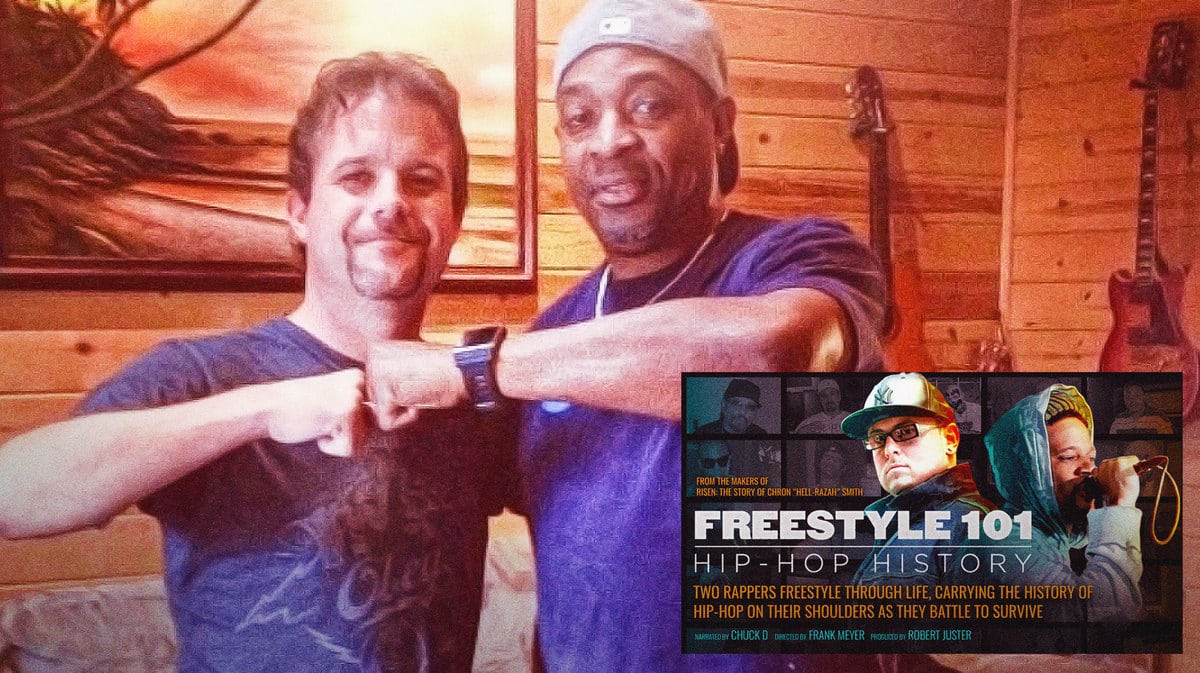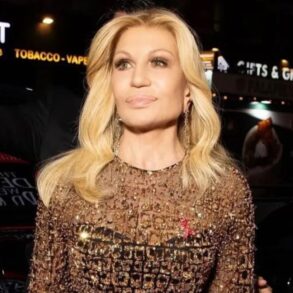
Frank Meyer wears a lot of hats — writer, director, producer, podcaster, musician, filmmaker — and he’s an all-around music buff who saw an important story not being told in the world of hip-hop. A lifetime in and around the industry, coupled with years of extensive interviews, research and passion, has led Meyer to finally tell that tale in definitive fashion in his captivating new documentary Freestyle 101: Hip-Hop History.
“As a guy who played guitar, I felt like I would read all these interviews with Eddie Van Halen and Ritchie Blackmore about their technique, and then when you’d read an interview with a rapper it’d be like, ‘when did you sell crack?’ and ‘how many times did you get shot?’” Meyer lamented.
“How is nobody talking to these guys about what they’re doing musically?” he wondered. “How are they not heralded as poets?”
Meyer decided to fill that void himself by creating a podcast for the G4tv Network focused on the art of creating hip-hop and having meaningful conversations with the artists themselves about their creative process.
Many of his talented musical guests would display their freestyle skills on the show, though Meyer cautions that not every rapper was necessarily a freestyler. “Not every rapper freestyles,” Meyer warned, “but every rapper probably starts with beatboxing and making up rhymes and battles and cyphers — before you even know what kind of artist you are.”
The show allowed Meyer’s multiple creative outlets to converge and it developed a substantial following of fans in the early days of podcasting. Meyer even got a shoutout from Steve Jobs during an Apple iPod unveiling event (Jobs clicked on Meyer’s podcast as part of the keynote, noting that it’s his favorite podcast).
Eventually, Meyer realized he had compiled so many extensive interviews with major transformative figures of the hip-hop music scene in Los Angeles and New York that this could expand beyond the podcast — and would make for a great documentary.
Simultaneously, he was going to more and more rap shows and concerts as a fan, and began taking notice of different subsets in the burgeoning genre, including freestyling. “At some point I started going to enough hip-hop concerts in that golden era and seeing a lot of great artists, and I saw some real freestyles and some real rap battles and was like, whoa, what’s that?”
Meyer, recollecting his first impressions of freestyling, remarked, “To me, as a guitar player, it was like watching two guitar gunslingers solo-ing, going at it.”
“You mean these guys can just go off the top like this?” Meyer remembered asking himself. “Not only can they write these lines, but they can make them up?!”
He was hooked, and knew he had a fresh angle for his documentary. But Meyer also astutely realized that the film could be more than simply talking head interviews about the history of the freestyle scene. He wanted to capture the journey of modern rappers on the rise in the freestyle sphere to answer the question, “okay, you’re the greatest gunslinger in the west, does that get you a record deal? Where does it lead?”
Meyer picked two fascinating young freestyle rappers in particular to follow for the film — Open Mike Eagle, an LA-based dad trying to make a living doing what he loves while still providing for his young family, and East Coast rap battle connoisseur Iron Solomon who wears his white Jewishness like a badge of honor and isn’t afraid to go toe to toe with anyone in the genre.
Both men exemplify the level of passion and hustle involved to make it as freestyle rappers, and both are showcased having moments of divine creative inspiration throughout, as poetic rhymes roll off their tongues with astonishing fluidity.
The film also features interviews and/or performances with some of the top names in hip-hop, such as Chuck D of Public Enemy (the film’s narrator), Ice-T, Wu-Tang Clan, Cypress Hill, Del the Funky Homosapien, Sean Kingston, M.O.P., The Game, Freestyle Fellowship, Supernatural and many others.
In addition, Meyer seeks out other poignant experts to interview — such as a medical doctor and researcher who studied the effects on the brain as freestyle rappers bust rhymes. An MRI revealed that the freestyling process largely turns off the parts of the brain that deal with self-censorship, which for me raised questions about how freestyle remains flourishing today in the world of cancel culture and the omnipresence of cell phone cameras.
“I certainly think it adds a dimension that didn’t exist until recently,” Meyer admitted, “this idea that you might go off the top and come up with a really nasty rhyme about someone for the sheer shake of pleasing the crowd at that moment or winning a battle,” but that which might come back to haunt you someday if the offending lyrics were being recorded.
Still, freestyle rapping remains a quintessential rite of passage in the world of hip hop. Meyer hopes that if there’s one takeaway from his powerful new film, it’s a quote said by one of his interview subjects, the rapper Ras Kass: “Life is like a freestyle.”
Meyer elaborates in his own words that “this is an art form based on improvisation and the idea that whatever comes at you, whatever changes, whatever sudden lefts or rights you need to make to get out of a situation in a freestyle rap… is much like the way in life things come at you and things change. In that respect, more so than in any other part of hip-hop, freestyling as an art form perfectly represents what life itself is really about.”
Filmmaker Frank Meyer’s thoroughly researched and enthralling behind-the-scenes look at this process makes Freestyle 101: Hip-Hop History an immensely watchable binge. It premieres on Prime Video and other streamers for rent and purchase on October 24. More information about the film can be found on its website and Instagram, Facebook and TikTok pages.
This post was originally published on this site be sure to check out more of their content.





